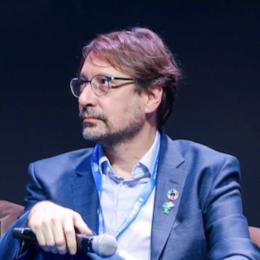Dr. Serge Stinckwich is a computer scientist and the Head of Research at the United Nations University International Institute for Software Technology (UNU-IIST) located in Macau, with 16+ years of experience at the intersection of digital technologies and sustainable development across Asia and Africa.
Since 2020, he has led an interdisciplinary research team at UNU in Macau (up to 8 researchers), focusing on responsible AI, gender and technology, digital health and agent-based/participatory modelling to advance the United Nation Sustainable Development Goals (SDGs). His research spans complex system modelling, social simulation and the impact of AI on global challenges.
Previously, he served as Associate Professor and researcher in an international joint research unit between the French Research Institute on Sustainable Development (IRD), Sorbonne University and 5 universities located in Cameroon, Morocco, Senegal and Vietnam. From 2008 to 2012, he worked in Hanoi, Vietnam, on the AROUND (Autonomous Robots for Observation of Urban Networks) programmed was an invited Professor at Kyoto University to work with Japanese experts on Rescue Robotics. From 2017 to 2020, he was based in Cameroon. With colleagues from the University of Yaoundé, he worked on Complex System modelling and Artificial Intelligence applied to applications like epidemiological surveillance and environmental monitoring in collaboration with IRD and CIRAD research institutes. From 2018 to 2018, Serge was the Principal Investigator of GDRI Sense-South, an international research network of teams from Senegal, Cameroon, Vietnam and France working on “Innovative Sensors and IoT Telecommunication Networks for Environmental Surveillance in Southern Countries”.
He organised 50+ international workshops and conferences and supervised 20+ PhDs/MsC students worldwide. Passionate about leveraging technology for inclusive and sustainable futures, Serge also conducts training sessions for policymakers and stakeholders on AI and climate, Large Language Models and synthetic data, and their implications for SDGs, as well as using agent-based models to design better health policies. Serge is also a strong believer of open collaboration and open source values.
Research Interests
- Agent Based Modelling
- Artificial Intelligence applied to Sustainable Development Goals (SDGs)
- Simulation and Modelling of Complex Systems

